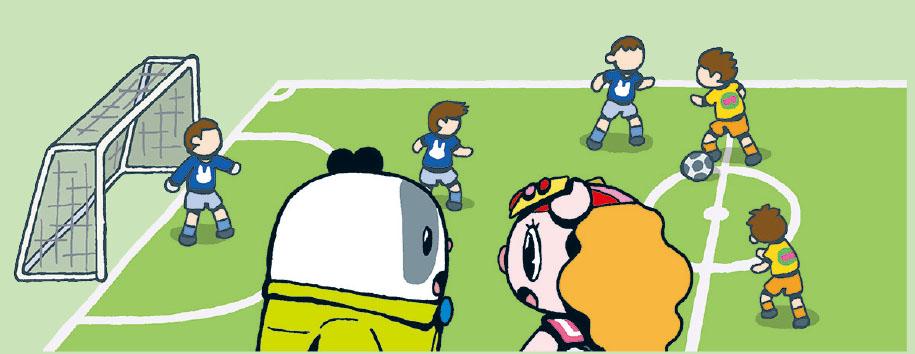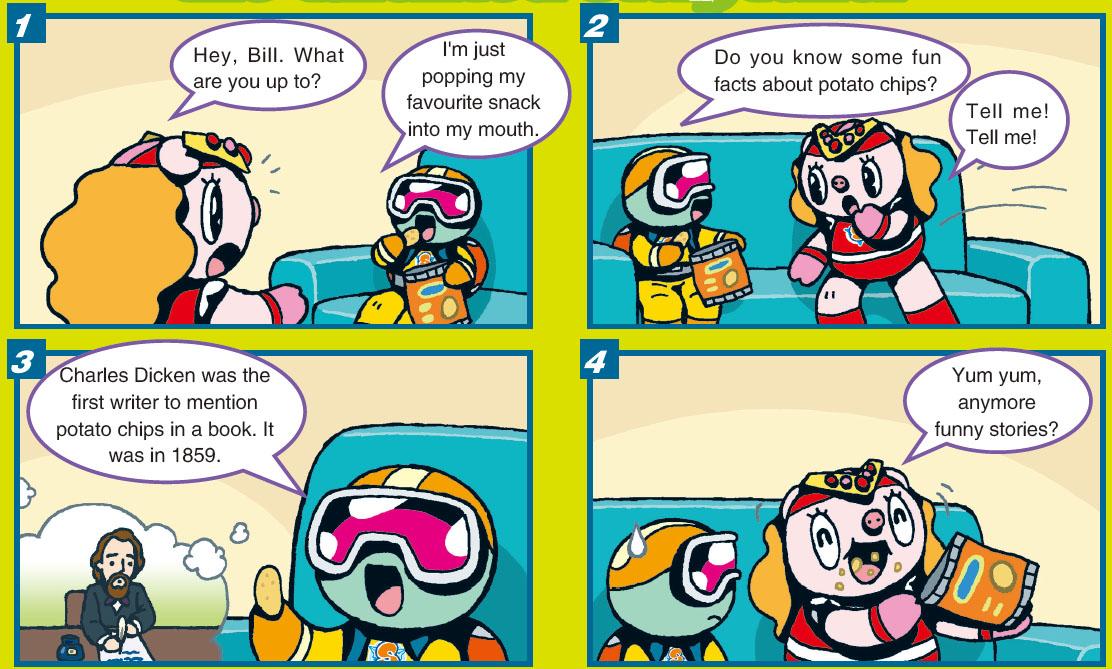Grammar:Modal verbs
【明報專訊】Pat and Dr Panda are watching a football match between Team MoMo and Team Bill. The match is intense.
Pat: I am sitting on the edge of my seat! I can't predict the result.
Dr Panda: I am in full support of Team MoMo. They will probably win this match. Look at their passing and shooting skills. They are all talented players.
Pat: No way! Team Bill has strong defensive tactics. Team MoMo may not find a way to pass through the backfield players.
Dr Panda: Don't throw cold water on me! I think you should not underestimate the power of the strikers in Team MoMo. They must lead the match and win.
Pat: If I were you, I would not be that certain. You never know what happens next. Look! Team Bill almost scored. What a pity!
Dr Panda: It is true though. Sometimes the winning team might get exhausted before the end of the match and lose right away. I am keeping my fingers crossed.
■English highway﹕
Modal verbs are used to express an idea such as possibility. Various modal verbs are used to show different extents of possibility.
Might: The possibility is weak.
e.g. I might study politics, but it is just a mere plan.
May: The possibility is weak, but the event is slightly more possible than something that ''might'' happen.
e.g. I may go to Central today, depending on the schedule.
Will: The event is certain.
e.g. It will rain today according to the weather forecast.
Must: It refers to something necessary or obligatory.
e.g. You must leave the hall now.
Should: The event is likely to happen.
e.g. He should be there in a few minutes.
■Gear up
Circle the correct answers.
1. He ________(should/must) be sent to jail if he committed such serious offences.
2. We ________(may/will) go hiking next Saturday. It depends on the weather.
3. They __________ (should/must) arrive soon. Let's wait for a few minutes.
(Answers on next text)
■Glossary
defensive (adj) 防守的
underestimate (v) 低估
exhausted (adj) 極度疲累的
certain (adj) 確定的
[Smarties' Power English 第305期]







